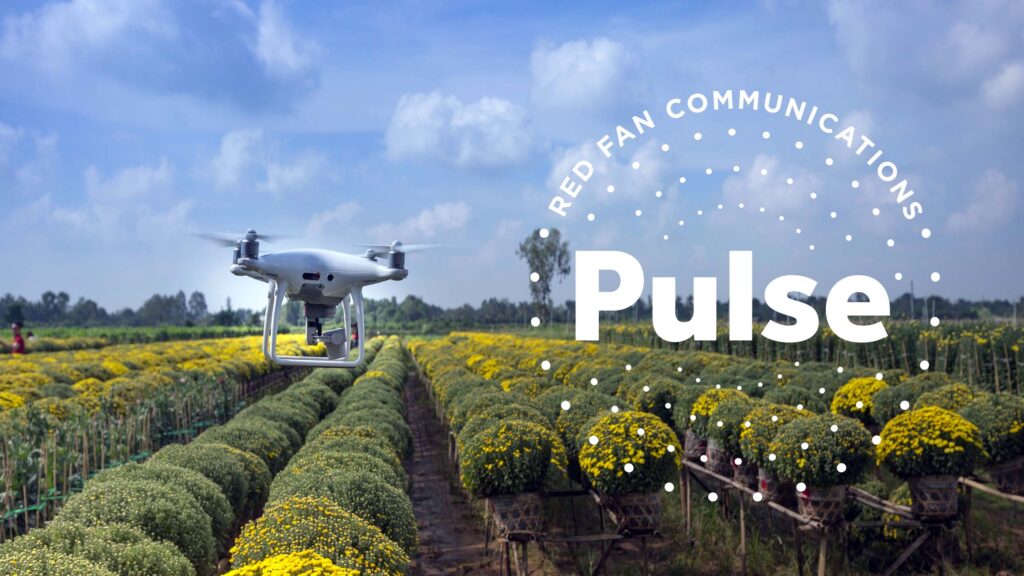OUR ENVIRONMENT HAS REACHED A BREAKING POINT, BUT THE WORLD HAS RESPONDED WITH INNOVATION.
There are no shortages of environmental catastrophes taking place around the world. From record-breaking heat waves and ever-present wildfires to disastrous hurricanes and storms, we’re witnessing a global crisis in real-time. Even worse, it’s impacting some of our most crucial resources: food and water.
But while our current outlook may not be so positive, the truth is that we can minimize the overall impact by making necessary changes quickly. When every industry does its part, we can collectively change the world. Agriculture is one of the standout industries making great strides in minimizing negative impacts on the environment. Agritech has reshaped food production, and it holds great promise.
CLIMATE CHANGE IS THREATENING OUR NATURAL RESOURCES
The impact of climate change is a familiar topic. The greenhouse emissions that continue to be pumped into our atmosphere cause rapid heating globally, leading to extreme weather events, higher temperatures on an international level and changes that adversely affect the environment.
When these changes occur, our natural resources are affected. Weather fluctuations can destroy crops and cause droughts. You only have to look as far as California and the West Coast to see a real-life example. Wildfires can burn farmland and further contribute to the issues we face. There’s also less food availability due to changes in supply chains as they face extreme weather.
Meanwhile, the changing temperatures of the ocean and the destruction of natural habitats threaten wildlife and impact various species (some of which we rely on for food).
It doesn’t take much to realize our planet is facing severe climate issues due to our habits, and it’s up to us to take the matter into our own hands.
HOW AGRITECH IS REVOLUTIONIZING TRADITIONAL AGRICULTURE
If you’re like most people, you view agriculture in a positive light. After all, widespread farming of various produce is how we can supply food to the population. But while this industry is natural, that doesn’t mean that it doesn’t impact our environment.
Surprisingly enough, agriculture accounts for 10 percent of the United States’ greenhouse production. This is due mainly to methane released by cattle, the fertilizers we rely on to jumpstart crop growth and the diesel-powered machinery needed to prepare and harvest crops.
In response, Agritech has stepped up to meet the growing demands for more sustainable, responsible farming practices. Some of the biggest innovations in cleantech include:
- Smart farming practices: In places where droughts are currently restricting water supply and making it more difficult for farmers to tend to their crops successfully, hydroponics is becoming the new norm. This type of AgriTech limits the amount of water and space needed to produce crops by getting rid of the soil and replacing it with another natural substance. Although this sounds counterproductive, hydroponic farms use 95 percent less water than traditional farming practices. Consequently, crops can be grown anywhere around the world during any time of the year. Smart farming requires novel solutions.
- Artificial intelligence: We’re most familiar with artificial intelligence for computer software and facial recognition programs. However, that’s not the case anymore. Agritech is now applying facial recognition software to plants like grapes to identify dangerous fungi. With the support of AI across a range of plants, we can successfully identify diseases in crops and take preventative measures before they wipe out acres. This technology will take time to develop, but it holds great promise as the idea is perfected.
- Clean energy: Cleantech is essential in agriculture and beyond because it minimizes the release of greenhouse gases. Although green energy is making its way to the forefront of the public consciousness, the United States still relies heavily on fossil fuels to produce energy. This extends to the production and powering of our tech as well. Cleantech solutions like solar energy are now being applied to farming to streamline operations and reduce greenhouse emissions. Better yet, some companies have offered automatic cleaning solutions to improve the efficiency of solar power and prevent cleantech from becoming another problem rather than a solution.
- Soil testing and waste conversion: We need fertilizer to make the land more suitable for growing crops. However, tracking the efficacy of our soil and finding better ways to employ waste that doesn’t impact the environment can be difficult. Agritech companies are developing new ways to turn human waste into energy, food waste into cattle feed, and beyond. Some companies are even developing better technology to ensure that the soil and fertilizer are offering plants the maximum nutrients they need to thrive.
As we look to the future for climate crisis solutions, we’re experiencing an increasing amount of AgriTech startups developing innovations that can truly make a difference.
ONLY WE CAN STOP CLIMATE CHANGE AND ITS IMPACT ON AGRICULTURE
The climate change crisis is by no means a new development. However, those who are truly starting to see the effects for themselves realize just how serious the situation is.
Agritech is not the only industry that needs to shift the way it operates. However, with the innovative solutions offered above, it’s certainly one that’s paving the way for more sustainable practices regarding farming, showing us just how much we can accomplish with the right tools.






